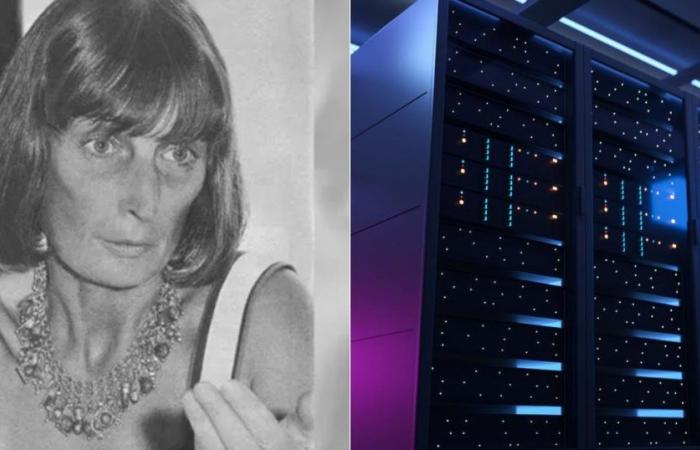Hosted in Essonne, this public supercomputer is named in honor of this engineer, who led the design of the Mitra 15 computer in the 1970s.
It is about rehabilitating the memory of these women forgotten by History. At the end of 2025, France will welcome on its territory a new supercomputer dedicated to research, capable of executing more than a billion billion calculations per second, or 1 Exaflop/s. This computing power will make it possible, for example, to test new drugs or to understand climate change. And this, by analyzing immense volumes of data generated by scientific instruments such as satellites or microscopes.
This public supercomputer, which will be hosted at the CEA’s Very Large Computing Center, in Bruyères-le-Châtel (Essonne), is financed by the European joint venture EuroHPC and by the French and Dutch governments. And when it came time to choose its name, the public authorities decided to name it Alice Recoque, in honor of this pioneer of French computing who is so little known to the general public.
“That’s excellent news”rejoices Marion Carré, co-founder of the start-up Ask Mona and author of Who wanted to erase Alice Recoque?a biography of the engineer published at the beginning of the year by Éditions Fayard. “Every emblem counts and this type of initiative keeps the memory of these women alive. It is important to recognize their contribution to scientific progress“. Died in 2021, Alice Recoque notably participated in the design of the first mini-computers.
Design of the Mitra 15
Born in 1929 in Algeria, Alice Recoque “begins in computing when the word computer does not yet exist”, underlines Marion Carré. A graduate of the Higher School of Physics and Industrial Chemistry (ESPCI), the engineer joined the Society of Electronics and Automation (SEA), which designed the first French computers. “It specializes in computer memory, which increases the power of these machines and makes it possible to considerably reduce their size.”
Alice Recoque directs the development of the Mitra 15 mini-computer, designed as part of the Calculation plan desired by General de Gaulle, intended to ensure the IT independence of France in the face of American technological power. Marketed in 1971, the Mitra 15 piloted missiles or ships, controlled robots or security systems in nuclear power plants, and calculated scientific experiments. Alice Recoque’s invention was also integrated into the first French digital networks including Cyclades, one of the ancestors of the Internet.
“The challenge is to inspire and bring out new generations of women scientists and computer scientists”
Marion Carré, author of a biography of Alice Recoque
The choice of naming the supercomputer after Alice Recoque allows “to highlight French pioneers to inspire and bring out new generations of women scientists and computer scientists”, notes Marion Carré. And particularly at a time when the average share of women in tech has only reached 22% in 2022 within the 27 countries of the European Union, according to a study by McKinsey.
Read alsoIn the Atos supercomputer factory
A pioneering interest in AI
An initiative which will perhaps allow the general public to discover the indelible mark of this French engineer on the world of IT… but also of artificial intelligence. Avant-garde, Alice Recoque recognized the importance of so-called “learning” technologies in the 1980s. In 1985, she was appointed to head the AI mission within Bull and imagined tools for text generation or automatic translation. Long before these were on the rise and experienced a spectacular boom, as with the advent of ChatGPT. “It is one of my great pride to have guided the group’s research around this subject, the scope of which we can see today”confided Alice Recoque in 2018 to Le Figaro.
The French engineer therefore already recommends avoiding fantasies in order to avoid any disappointment, but also to control these innovative technologies. “She perceived the impact of these machines on society, and insisted on the importance of having safeguards,” notes the author of her biography. At the end of the 1970s, Alice Recoque participated in the meetings leading to the creation of the National Commission for Information Technology and Liberties (CNIL).
If the memory of the engineer almost faded, the inauguration of this future supercomputer is an opportunity to rehabilitate her, even if for Marion Carré, “Alice Recoque is a tree that hides the forest. There are many other pioneering women in this field who we have lost track of..






